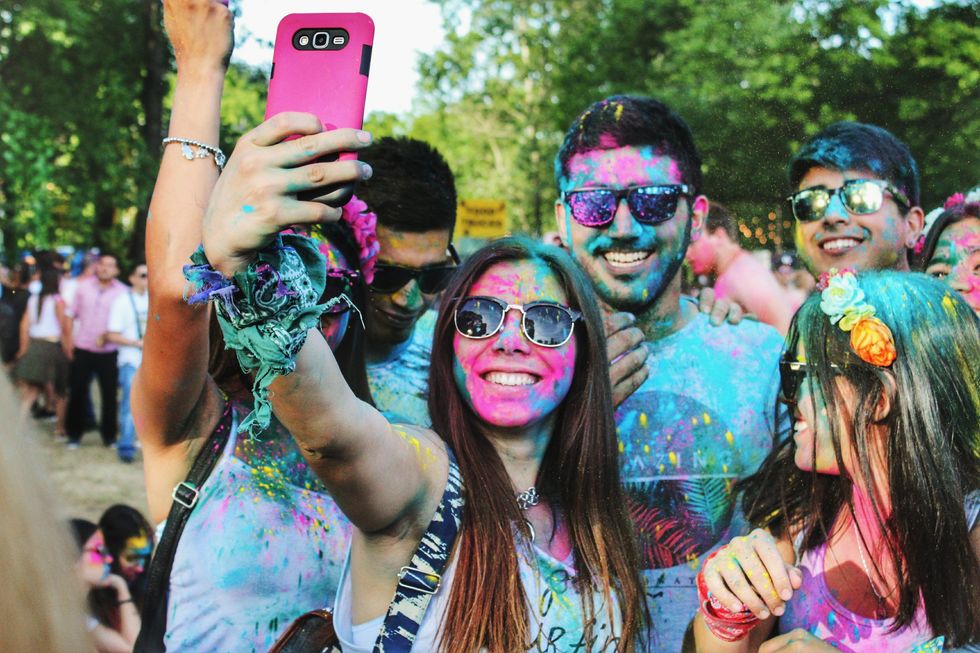You spend time at least once a week going through your social feed. You even spend time once a day going through your social feed.
There is a power in the words you speak and post online, and these very words can impact others' lives, negatively or positively. As an example, according to the Huffington Post, women are met with being "…ignored, trivialized, or criticized by men…" online mainly because the rift between the two genders prevents proper communication.
Gender equality can be achieved by online engagement, or posting. In some cases, though, the opposite can be true. I personally love Instagram and will occasionally find myself scrolling through posts recommended by the platform itself simply so I can waste time and complain about that later. A few weeks ago, I happened to be relapsing into my Instagram addiction and found myself particularly drawn to a certain post by Rowan Blanchard, which had a caption reading that "Cis men are violent and dangerous and until numbers prove [her] wrong [she] won't be able to not make statements that can't be read as vague."
Now, MSNBC identifies activism today as "…easier than ever…" thanks to social media, with "…[facilitated] public dialogues and… a platform for awareness…," but the caption of Blanchard's post shown is not activism at its finest. In a brief synopsis, activist Rowan Blanchard, who you may know from the show "Girl Meets World," addresses her distaste for men, going so far as to generalizing them as dangerous. In my opinion, this is one step backward in the fight for equality rather than a step forward.
Men and women alike have our differences that we consistently brush over in angry online comments but never truly sit down and discuss. The presence of a civil conversation between members of opposing sides of the gender argument is astonishing, and I myself have never seen one online. These conversations act like haunting illusions of a future we can only dream of, as if such a situation is purely unattainable otherwise.
We fawn over the thought, calling ourselves servants at the hands of a society where men and women can join each other and claim that there is no reason to feel unequal. The idea is breathtaking, and the friendships between men and women would be endless. Unfortunately, modern-day social media displays misogyny, misandry, animosity and all forms of verbal destruction against both genders that I feel sorry to merely acknowledge.
Before I took a break from being active on social media, I used Instagram to showcase my thoughts on these issues. I found it compelling to have an audience of my close friends and acquaintances listening as I explained and rationalized about online sexism repeatedly.
Occasionally, the topic sparked up friendly conversation about disagreements, and being honest, I felt threatened by how unthreatening the discussion was. It was as if I was asking for a reason to feel angry, to feel offended, but I instead was met with the harsh reality that social media can allow engagement in normal conversation.
The culture that revolves around online discussion is brash and led by emotion rather than by statistics, and while Blanchard may claim that she wants precise statistics before she alters her position against men, many online still fail to recognize the validity of such numbers. Her use of a hasty generalization clearly shows the lack of structure within her argument; I may be solely pointing her out, but her rationale stands as an example of the obstacles we face in the path to gender equality.
MSNBC used Twitter demographics to explain the impact of current events revolving around gender debates on the amount of discussion about sexism, and the results show that social media holds power. It holds hope and determination and serves as a pathway to a society where we may be able to hold hands and know we have no fear of being inferior to one another. Our generation is accustomed to seeing this magnitude of a response online, but when imagining every person who tweeted about this, there is potential change that we can visualize.
We have small devices hidden in the back pockets of our jeans that give us access to billions of users across the Internet, and all it takes is one post online to go viral. Within minutes, we can reach out to hundreds or thousands of people, updating them about our lives. With the ability to contact an enormous number of people, the only question you are left to ask yourself is, "How will you bring about a positive change to social equality?"
Your response to this question is being awaited every moment of your life.
Disclaimer: Please note that this has been a speech previously submitted as an assignment in a class.

















